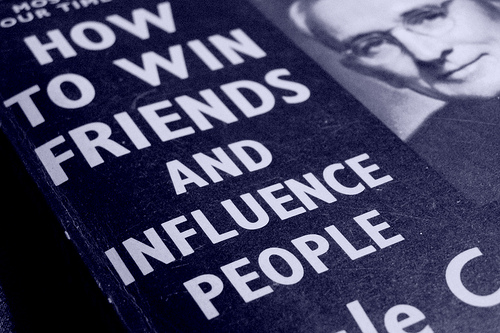Can Klout really determine true influence with an algorithm?


Who should care about their personal brand?
The real answer? Probably only a small handful of people.
I'm having a hard time wrapping my head around the real value of encouraging everyone to care about their personal brand honestly. Unless you are a business, consultant, rockstar, comedian, or actor, why do you need a personal brand? We aren't brands, we are people. My issue with sites/tools like Klout is that I think their intentions are good for business but the self-proclaimed “rockstars” and “influencers” that have the most Klout muddy up the waters a LOT and if people think that a couple complex algorithms that juggle some numbers on Twitter can tell you who is truly influential and why, I think this is a mistake. We aren't getting real influence here. Sometimes it's more of a placebo made out of ones and zeros.
While we know that social media has ushered in a new era of positive reinforcement and competition between individuals and businesses with badges, retweets, and virtual currency earned through content sharing, what does all of that really mean in the grand scheme of things? What makes a calculated content-sharer who spends most of their life on the internet “influential”? I know people on Twitter that are extremely influential in their respective industries but that don't tweet much or spend much time on Facebook at all.
While social media can most certainly augment the interactivity and a small layer of the overall influence of certain individuals and brands, it's usually what they've done outside of social media that made them influential in the first place. This is STILL true today. Social media has paved the way for several fake celebrities (referred to as “gurus” in the social media space) to lift themselves up as influential people.
Whether Klout intended to or not, their concept perpetuates a focus on a single number – the Klout score – generated by a very limited scope of data made available that on the internet that is said to describe one's life, activity, interaction and influence through the eyes of what they do with their smartphone or computer. Klout, in reality, measures your influence based on how active and savvy you are using and understanding social channels, which has little to do with your actual influence.
We have much more going on in the land of organic humans than that….at least I hope. :-)
Early bird gets the worm
Klout knows that in the mess of content flooding all of our channels, the enthusiastic newbies who are still learning how to clean up and manage their incoming content from the internet would love an easy, cut & dry way of figuring out who and what the meaningful sources are to suit their interests, for business or otherwise.
I believe Radian6's rampant success was all about their timing and their early access to aggregated social data before anyone else was doing it. After sitting through several demos from Radian6's competitors, I can safely say it definitely was NOT their user experience that made their name big. Klout also benefits from being another early bird. They are one of the first to take their type of approach to find influence through multiple calculations and then create a standard out of it.
Klout's data has been easily integrated into many of the most popular tools used today to manage social engagement as something to focus on. Whether you are using HootSuite or some of the other solutions, when hovering over a Twitter user, more often than not, their Klout score is almost always front and center, giving the people that are fairly new to social media the idea that a Klout score plays a major key role in the equation, determining the importance of users to connect or do business with.
I have to hand it to Klout from a marketing/branding perspective. At a time, in an industry, where hundreds of thousands of people are starving for some set of standards for social data, Klout's timing is impeccable.
Klout means well
Other than the fact that I have a personal disgust for social media's general contribution to perpetuating narcissism on a whole new level, myself included at times, I do believe that Klout's approach has the right intentions in trying to help us all make sense of the who and the what online. I do think they should make more of an effort to publicly address the importance of all the influence that goes on outside of the Klout score and encourage newbies to do more comprehensive research instead of giving people the perception that a Klout score plays such a prominent role in evaluating someone's overall influence.
In my opinion, the most important and substantiated influence begins offline.